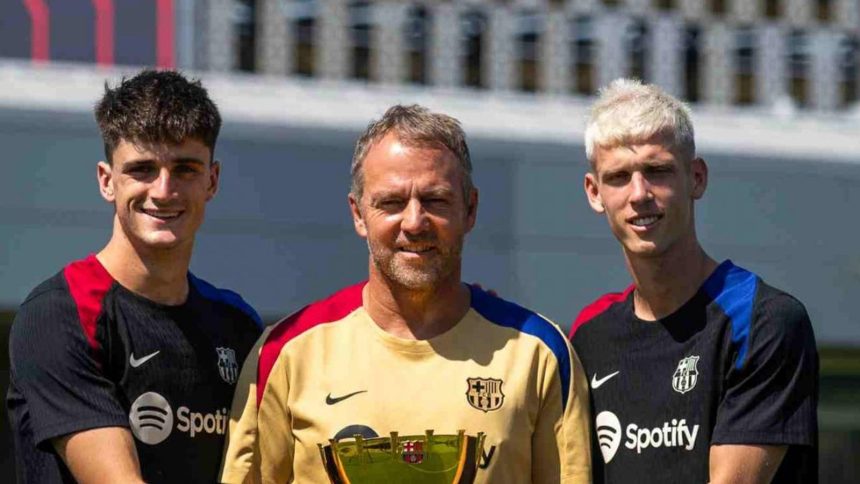The Spanish Council for Sports (CSD) has granted a provisional reprieve to FC Barcelona and its players Dani Olmo and Pau Victor, suspending the previous decision that had blocked their registrations. This decision, described as an “urgent precautionary measure,” effectively reinstates the players’ licenses pending the outcome of an appeal filed by the club and the players. The initial refusal of registration stemmed from a dispute related to the interpretation and application of the RFEF-LaLiga Coordination Agreement, overseen by a Monitoring Committee. The CSD’s intervention allows Olmo and Victor to potentially participate in the Spanish Super Cup final, should Barcelona advance past Athletic Club in the semi-final.
The crux of the appeal revolves around the Monitoring Committee’s perceived overreach of its designated powers. Barcelona argues that the Committee’s role is limited to interpreting and monitoring compliance with the RFEF-LaLiga Coordination Agreement, not to unilaterally revoke player registrations. The CSD, after reviewing the 52-page appeal and accompanying documentation, acknowledged the possibility of a “full nullity” in the Committee’s decision, implying a fundamental procedural error. Furthermore, the CSD recognized the potential for “immediate and difficult-to-repair damages” to the players’ careers and legal rights if the initial decision were to stand.
The CSD’s decision emphasizes the principle of safeguarding athletes’ rights, as enshrined in Article 27 of the Spanish Sports Law. This article guarantees professional athletes the right to pursue their sporting careers to their full potential, with appropriate guarantees and certainty. The CSD deemed that upholding the initial registration refusal would infringe upon this fundamental right, particularly given the immediate context of the Spanish Super Cup, a prestigious competition with significant global exposure. The potential ramifications extended beyond the players’ individual careers, potentially impacting FC Barcelona’s economic and sporting interests, the Spanish national team, and the integrity of national competitions, including La Liga.
In its justification for granting the precautionary measure, the CSD highlighted the potential repercussions of upholding the initial decision. Firstly, participation in the Spanish Super Cup, a tournament reserved for high-performing teams, represents a significant opportunity for players. Being barred from this high-profile competition could inflict considerable reputational and financial damage on the players. Secondly, the CSD recognized the potential negative impact on FC Barcelona. The absence of key players could weaken the team’s competitiveness, jeopardizing their chances of success in the tournament and impacting their overall standing.
Beyond the immediate impact on the club and players, the CSD also considered broader implications for Spanish football. The exclusion of eligible players from such a prestigious competition could tarnish the overall image of Spanish football and affect the integrity of the competition itself. Additionally, the potential absence of Olmo and Victor from national team selection could harm the national team’s performance. This ripple effect underscored the importance of swiftly addressing the situation to minimize potential disruption across the Spanish football landscape.
The CSD emphasized that its decision to grant the precautionary measure does not prejudge the outcome of the main appeal. The ruling is expressly provisional, designed to preserve the status quo while the full merits of the appeal are considered. This ensures that Olmo and Victor’s rights are protected pending a definitive resolution, while also allowing the appeal process to unfold without the pressure of immediate and potentially irreversible consequences. This approach strikes a balance between protecting individual rights and respecting the established legal procedures.
While the immediate consequence of the CSD’s decision is that Olmo and Victor regain their eligibility to play, the broader implications are significant. The ruling highlights the delicate balance between regulatory bodies and individual athlete rights. It underscores the importance of ensuring that administrative decisions are made in accordance with established legal principles and that the rights of athletes are protected throughout the process. The case also sheds light on the complexities of managing player registrations and the potential for disputes arising from the interpretation and application of regulations governing professional football. The final outcome of the appeal will undoubtedly have lasting implications for the governance of Spanish football and the relationship between clubs, players, and regulatory authorities.



